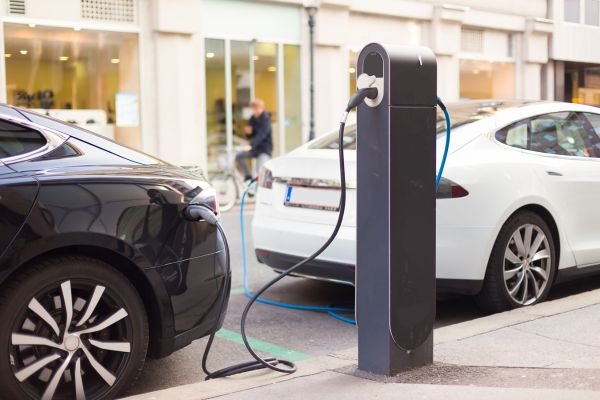Brexit, the historic decision that saw the United Kingdom (UK) bidding farewell to the European Union (EU), has sent ripples of uncertainty and transformation across various sectors. As one of the key industries affected, the automotive sector, particularly the electric car segment, finds itself navigating uncharted waters in the post-Brexit landscape. The European electric car industry, which was already in the midst of a rapid transformation towards sustainability and electrification, now faces an additional layer of complexity as it grapples with the implications of this monumental geopolitical shift.
Brexit’s impact on the European electric car industry is far-reaching and multi-dimensional, influencing aspects such as manufacturing, supply chains, regulations, investments, and consumer behavior. The interconnected nature of the automotive sector has meant that changes in trade relationships, regulatory frameworks, and market dynamics have cascading effects on electric car manufacturers, policymakers, and consumers alike. Understanding these implications is essential in charting the course for the future of electric mobility in Europe and embracing the opportunities that lie ahead.
This article aims to provide a comprehensive analysis of the impact of Brexit on the European electric car industry, exploring both the challenges and the potential for growth and innovation. By examining the shifts in trade patterns, the evolving regulatory landscape, the effect on cross-border investments, and the changing preferences of consumers, we gain valuable insights into the current state and future trajectory of the European electric car market. As the industry adapts to the new realities of a post-Brexit world, the European electric car market has the opportunity to emerge stronger and more resilient, driving the continent towards a cleaner, greener, and electrifying automotive future.
Disrupted Supply Chains and Manufacturing
The intricate web of supply chains and manufacturing processes that underpin the European electric car industry has been significantly impacted by Brexit. Prior to the UK’s departure from the EU, a seamless flow of components and goods facilitated efficient production processes, allowing electric car manufacturers to operate with relative ease across borders. However, with the introduction of new trade barriers and customs procedures, the once-smooth movement of materials has become entangled in logistical complexities.
Brexit has forced manufacturers to reassess their supply chain strategies and contingency plans. The increased paperwork, compliance costs, and delays at border crossings have presented challenges for just-in-time production methods that rely on streamlined logistics. Automakers have had to contend with disruptions to the timely delivery of parts, leading to potential production delays and cost implications. In response, some manufacturers have sought to diversify their supply chains, exploring alternative sources and production locations to mitigate the risks posed by Brexit-related uncertainties.
Moreover, the automotive industry operates on an international scale, with manufacturers relying on a network of suppliers from various countries. The introduction of new trade barriers between the UK and the EU has created uncertainties around the continuity of existing supplier relationships and the feasibility of maintaining integrated manufacturing processes. As a result, some automakers have opted to establish production facilities within the EU to maintain access to the single market and secure a smoother flow of goods and components.
Furthermore, the electric car industry is heavily reliant on advanced technologies and specialized components, many of which are sourced from countries both within and outside the EU. The complexities of Brexit have raised concerns about the availability and cost of these critical components, potentially impacting the overall competitiveness of European electric car manufacturers.
In navigating these challenges, collaboration and dialogue between industry stakeholders and policymakers have become crucial. Efforts to address border-related inefficiencies, harmonize regulatory standards, and establish clear trade agreements will play a pivotal role in restoring stability and facilitating a more seamless flow of materials, ultimately bolstering the resilience of the European electric car industry in the post-Brexit era. As automakers adapt to the evolving supply chain landscape, the development of agile and robust manufacturing strategies will be key to ensuring the continued growth and success of the electric car industry in Europe.
Regulatory Divergence and Compliance Challenges
Another critical aspect of the Brexit impact on the European electric car industry is regulatory divergence and compliance challenges. Prior to Brexit, the UK was part of the EU’s regulatory framework for vehicle standards, emissions targets, and safety regulations. With the departure from the EU, the UK now has the freedom to establish its own regulatory standards, which may differ from those set by the EU.
For electric car manufacturers, this regulatory divergence creates complexities in ensuring compliance with varying standards across different markets. Automakers need to invest in adapting their vehicles to meet both UK and EU regulations, increasing development costs and potentially affecting the availability of certain electric car models in certain regions. Moreover, regulatory uncertainty could deter manufacturers from introducing new electric car models or investing in research and development in the post-Brexit landscape.
Impact on Investments and Funding
Brexit has also influenced the flow of investments and funding in the European electric car industry. The uncertainty surrounding the post-Brexit economic climate has led to cautiousness among investors, affecting the availability of capital for research, development, and expansion projects. Additionally, certain government-funded initiatives and grants previously accessible to UK-based companies within the EU framework may no longer be available post-Brexit.
The shift in investment patterns may also affect the development of charging infrastructure for electric vehicles in the UK and Europe. Investment in charging networks is critical to supporting the widespread adoption of electric cars and addressing range anxiety among consumers. However, Brexit-related uncertainties may impact the pace and scale of investment in charging infrastructure, potentially slowing down the electrification process in certain regions.
Consumer Behavior and Market Dynamics
Consumer behavior plays a crucial role in shaping the demand for electric cars in the post-Brexit landscape. With the introduction of new trade barriers and potential price increases due to regulatory compliance costs, the affordability of electric cars may become a concern for consumers. Uncertainties surrounding tariffs and import costs may also lead to fluctuations in electric car prices, impacting consumer purchasing decisions.
Moreover, the divergence in regulations between the UK and EU may result in variations in incentives and subsidies for electric cars, influencing consumer preferences in different regions. Policymakers will need to adopt targeted measures to incentivize electric car adoption and ensure a consistent approach to promoting sustainable mobility in the face of regulatory divergence.
Collaborations and International Partnerships
Brexit has prompted a reevaluation of international collaborations and partnerships in the European electric car industry. Prior to Brexit, the UK served as a bridge between European and global markets, attracting international investments and fostering collaborations between UK-based companies and European partners. With the shift in the UK’s relationship with the EU, some of these collaborations may face challenges related to trade barriers and regulatory disparities.
However, Brexit has also presented an opportunity for new alliances and collaborations between UK-based electric car manufacturers and non-European markets. The UK’s ability to establish its own trade agreements may open doors for partnerships with countries outside the EU, potentially expanding market reach and driving innovation in the European electric car industry.
Conclusion
Brexit has introduced significant challenges and complexities to the European electric car industry, affecting supply chains, manufacturing, regulations, investments, and consumer behavior. The disruptions to supply chains and manufacturing have highlighted the need for adaptability and strategic planning in the post-Brexit landscape. Regulatory divergence poses compliance challenges for electric car manufacturers, necessitating investments in meeting varying standards.
Investments and funding may experience fluctuations, impacting research and development as well as charging infrastructure development. Consumer behavior will play a pivotal role in shaping the demand for electric cars, and policymakers will need to implement targeted measures to incentivize sustainable mobility. As the European electric car industry navigates through the uncertainties brought about by Brexit, opportunities for new collaborations and partnerships may emerge, fostering innovation and driving the evolution of electric mobility in Europe.
As the industry adapts to the post-Brexit realities, governments, automakers, and consumers must collaborate to create a sustainable and thriving electric car ecosystem in Europe, one that harnesses innovation, fosters international partnerships, and paves the way for a greener and electrifying future on the roads.



